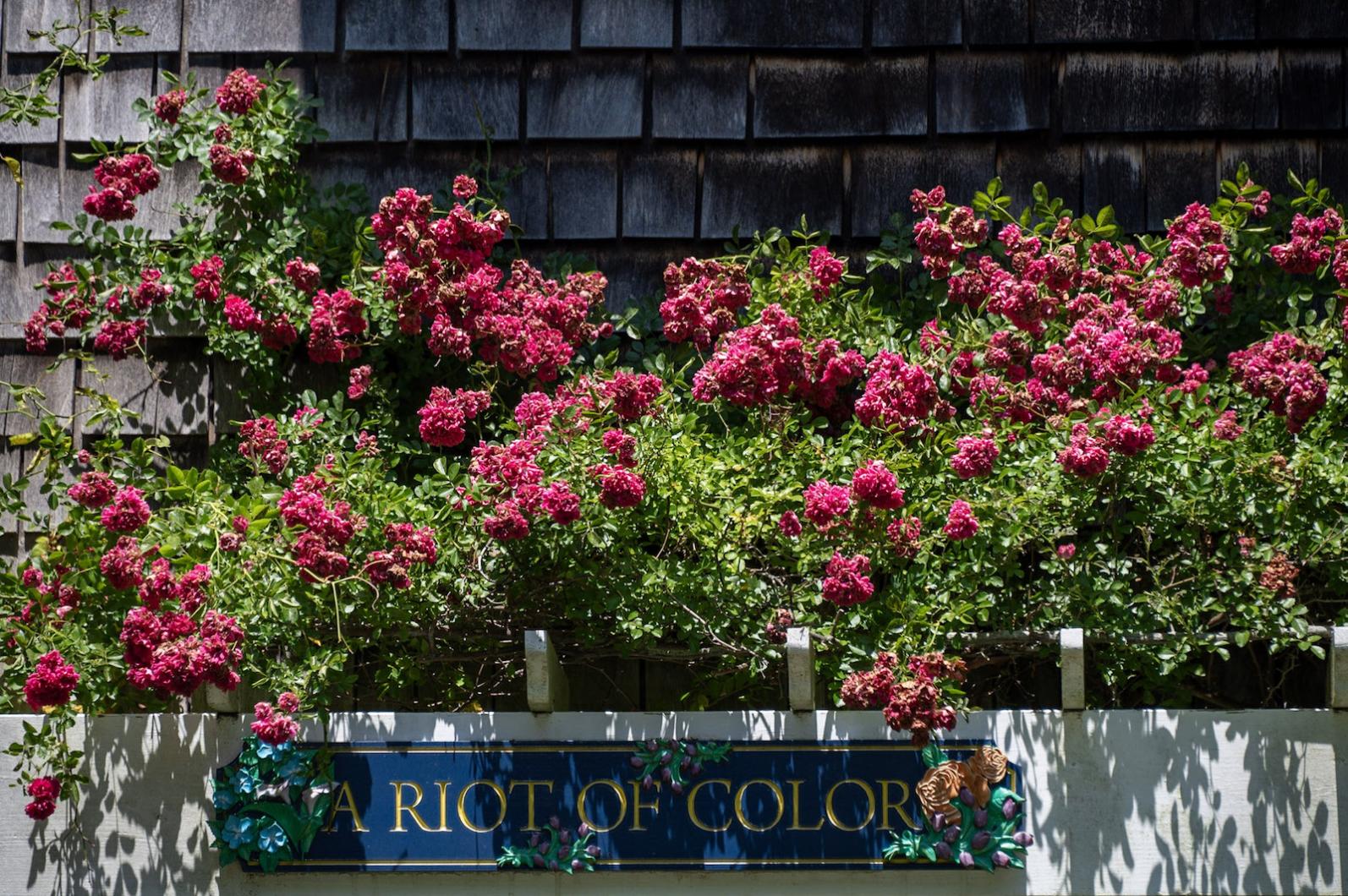From the July 7, 1961 edition of the Vineyard Gazette:
This is the interval of the year and the calendar when it is more fashionable to look ridiculous than to look attractive, and the shorts, shirts, slacks, and hats will astonish posterity when they are reproduced in pictures in years to come.
This is summer.
This is the time when otherwise responsible people forget where they have parked their cars, and fastidious men and women who would raise merry hell if gravel turned up in their food in a restaurant, go to the beach and eat lobster and sand sandwiches.
Beyond any doubt, this is summer, the real thing.
This is — but what’s the use? Everybody knows what it is, and the crazier it is, the more we like it, one and all.
The Fourth of July came and went, and Wednesday morning dawned in Edgartown as bright and serene as if the day before had not seen one of the biggest celebrations to be held there for many years. The only evidence that anything extraordinary had happened was to be found in the visible bone-weariness of the law enforcement officers, a few hangovers causing frowns here and there, and the forlorn looking reviewing stand in front of the Methodist Church.
The USS Borie, the Navy destroyer that had come to Edgartown for the holidays on Saturday, pulled out of the harbor early Wednesday morning, taking with her the white uniformed sailors, officers and midshipmen from Annapolis, whose presence had given the town and the Island an extra measure of festivity, and leaving behind the fond memories of many people, young and old alike, who had managed a close look at her gray image by riding out to the outer harbor in one of the little power boats that were acting as ferries.
Great numbers of people flocked into Edgartown, especially for the fireworks. There seemed to be fully as many as in other years.
To help out the men in the Edgartown police department, there were the state police from the Oak Bluffs barracks, augmented by three state police sergeants from the mainland, Inspector Cyril J. Blackwood of the registry of motor vehicles, two patrolmen from the Oak Bluffs department, two from the Tisbury department, and a detail of thirteen men of the Shore Patrol plus two officers from the Borie.
The fireworks display was pronounced as good as or even better than those of other years by all witnesses. One improvement over other years seemed to be in the spacing of the individual shots closer together, so the waiting in between was cut to a minimum. The grand climax, when everything seems to go off at once, was nothing less than a real lollapalooza.
As always in the opening days and weeks of the summer season, Martha’s Vineyard is a place of discovery for a great many visitors who see it for the first time. These newcomers almost invariably express delight over the unspoiled character of the Island — delight and surprise. How is it possible that we have been spared the mutilation and exploitation so nearly universal on the mainland?
Hardly is the question asked then it is followed by another: can Martha’s Vineyard be kept this way as population grows and the pressures of modern civilization increase?
And that is the question that concerns and must increasingly concern all lovers of the Island. The answer is by no means clear. If the future is left to drift, chance and least resistance, it certainly will suffer the dissection and uglification of the mainland. But if there is forethought and wisdom in management, the Island characteristics most valued — and most valuable in the economy of a summer resort such as this — may be preserved. Bearing importantly upon the Island’s destiny are the efforts of a committee which is now discussing one important phase of the whole issue of conservation. This has to do with the preservation of open spaces, of native Vineyard countryside, of large tracts that may soon be threatened with subdivision or mutilation.
One method by which an owner of a tract of land may provide for its future is the legal device of an easement; he may deed, not the land itself, but certain attributes of ownership to a non-profit organization whose aim is the preservation of natural areas. He may retain only the right to use the property in ways not inconsistent with its status as an attractive green open area — which is the only right he desires to exercise. And through this arrangement he may obtain legitimate tax benefits which will give his public spirit a sound economic justification.
Compiled by Hilary Wallcox




Comments
Comment policy »